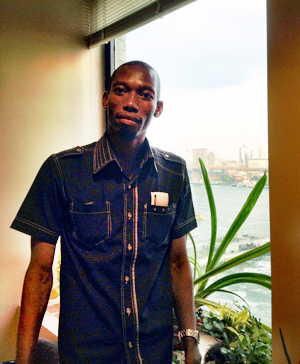Posted by Lucile Scott, November 7, 2013
In September, Pope
Francis made global headlines when he stated that the Catholic Church had grown
“obsessed” with gay rights, contraception, and abortion, and called for it to
“find a new balance.” The majority of the world’s 1.2 billion Catholics now
reside in Africa, the Caribbean, Latin America, and Asia—many in the countries
hardest hit by the AIDS epidemic. And the Catholic Church is also the largest
private provider of HIV care in the world. However, until 2010, 30 years into the
epidemic, the church condemned the use of condoms in any circumstance,
including for the prevention of HIV. And the Holy See did not publicly speak out
against homophobic violence and anti-gay laws until 2008.
But while Francis’
September statement was a momentous and high profile shift for church, it was
far from an isolated event. Church officials have been increasingly using the
pulpit to advocate for sound HIV policies for all populations in their
communities for years. amfAR spoke to Craig Rijkaard, acting executive director of the
Antiguan Resilience Collective Inc. (ARC)—a GMT Initiative grantee partner—about
how the Catholic Church in Antigua and Barbuda’s efforts to combat HIV and the
anti-gay policies that fuel new infections have impacted his organization’s HIV
outreach and advocacy work.
 Craig Rijkaard, executive director of the Antiguan Resilience Collective Inc., visit’s amfAR’s New York offices. Even before Pope Francis spoke, back in Benedict’s time, we
got a new bishop in Antigua, Bishop Kenneth Richards, who within I think the first month after he got ordained went on
the radio and said publicly that he is not to judge what happens in an adult
bedroom. And that got the ball rolling. Now we have a lot of discussion
surrounding this issue on talk shows and in the churches. Some churches are now
inviting people from different organizations and from the Directorate of Gender
Affairs to come in and talk to their congregations about it.
Craig Rijkaard, executive director of the Antiguan Resilience Collective Inc., visit’s amfAR’s New York offices. Even before Pope Francis spoke, back in Benedict’s time, we
got a new bishop in Antigua, Bishop Kenneth Richards, who within I think the first month after he got ordained went on
the radio and said publicly that he is not to judge what happens in an adult
bedroom. And that got the ball rolling. Now we have a lot of discussion
surrounding this issue on talk shows and in the churches. Some churches are now
inviting people from different organizations and from the Directorate of Gender
Affairs to come in and talk to their congregations about it.
Men who have sex with men (MSM) are criminalized in Antigua
and Barbuda, and that can make it very difficult for them to access health
services. In the churches, they talk about gay rights in terms of HIV. They say
that everybody has the right to healthcare and that we need to make access easy
for everyone, because if it’s not, it means the faithful housewife could be
infected by her husband, who maybe goes out sleeping with a sex worker, be it
male or female.
At ARC, we provide trainings for healthcare workers and a
referral system so GMT can see a doctor who won’t treat them differently, and we’ve
been invited to talk on the air about these programs to ensure that people in
same-sex relationships have the same access to health services as everyone
else. Currently, an individual might go to the public health service and say
they have MSM-related health issues, and first they have to tell the person at
the counter, and then then nurse, and then the doctor, and they may experience
stigma or discrimination. So we find that a lot of clients end up
self-medicating and aren’t getting the care they need.
We are not at a place where everyone is going to say, oh yes,
we totally accept homosexuals and lesbians, but we’ve seen a shift in how people
have been behaving recently, since all the discussions. In the past, we had bad
situations where homosexuals were stoned or beaten, and they couldn’t go
certain places, and now we are seeing it’s more normal. I think this has made
the healthcare workers more receptive. Recently, I met with a head nurse about
doing a workshop to help the community nurses provide better care for MSM and
she said, ‘Just let me know when you want to have the workshop and how many
nurses you need and how we can work with you.’